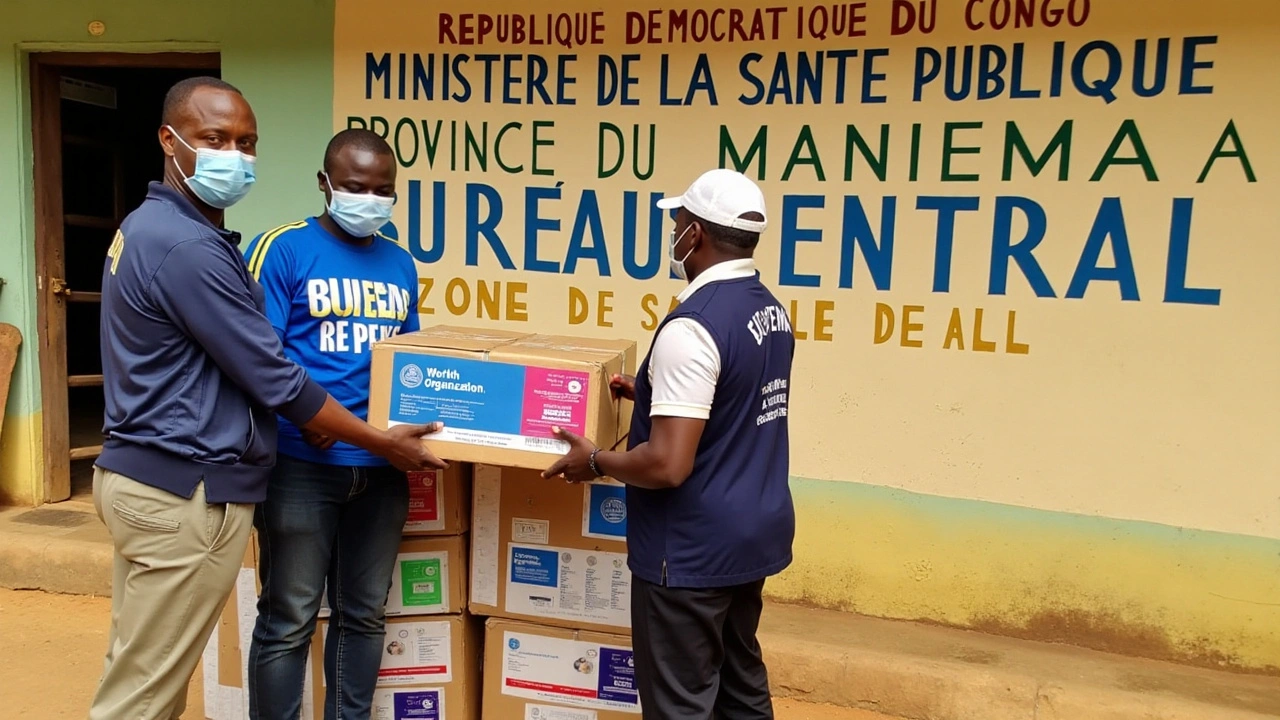WHO Declares Mpox Outbreak a Global Public Health Emergency
On August 14, 2024, the Director-General of the World Health Organization (WHO) made an urgent declaration regarding the recent Mpox outbreak, labeling it a Public Health Emergency of International Concern (PHEIC). This decision followed a meticulous evaluation of the situation, which has seen Mpox spread rapidly across multiple regions, igniting substantial worry among global health agencies and governments.
The declaration signifies a critical juncture, necessitating an immediate and coordinated international response to tackle the escalating public health threat. Mpox, a disease characterized by fever, skin rashes, and severely debilitating symptoms, has been expanding swiftly, sparking significant alarm. With the WHO's declaration, the global health community is now mobilized to implement strategic measures to contain and ultimately eliminate the outbreak.
Rapid Spread and Gravitas of the Situation
The WHO's assessment reflects the gravity of the situation, noting the rapid transmission rate of Mpox. This virus, transmitted through close contact with infected individuals or contaminated materials, poses a severe challenge to public health systems worldwide. Initial symptoms include fever, intense headache, muscle aches, and exhaustion, followed by the development of a distinctive rash. Given the nature of its transmission and the potential for severe health outcomes, the urgency for a comprehensive response cannot be overstated.
Experts have highlighted the importance of early detection and isolation of cases to prevent widespread transmission. With densely populated urban centers being particularly vulnerable, there is an immediate need for enhanced surveillance, robust public health communication, and swift mobilization of medical resources.
International Collaboration and Strategic Response
The WHO Director-General emphasized the indispensable role of international collaboration in effectively managing the Mpox outbreak. Nations must work together, sharing data, resources, and medical expertise to contain the virus. Health organizations, governments, and research institutions are urged to join forces, pooling their efforts to develop and implement effective containment strategies.
Among the strategic measures recommended are extensive contact tracing, quarantine protocols, and the distribution of medical resources to the most affected areas. Additionally, public health campaigns aimed at educating the populace about preventive measures and symptoms recognition are critical in curbing the spread. The shared goal is to mitigate the outbreak's impact through concerted efforts and solidarity.
Commitment to Affected Areas
The declaration also underscores the commitment of the WHO and international community to provide necessary support to regions grappling with the outbreak. This includes not only medical supplies and healthcare personnel but also logistical and financial aid to ensure effective management and containment initiatives. Affected countries are encouraged to maintain transparency in reporting cases and to seek assistance promptly to avoid further escalation.
Efforts are being ramped up to develop effective antiviral treatments and vaccines. Researchers are working tirelessly to understand the virus's genetic makeup, transmission dynamics, and potential therapeutic targets. Initial findings indicate that prompt administration of supportive care and antiviral medications can significantly improve patient outcomes.
Public Vigilance and Preparedness
In light of the declaration, the international community is urged to remain vigilant and adhere to recommended safety protocols. These include frequent hand washing, avoiding close contact with symptomatic individuals, and following guidelines issued by health authorities. Public health agencies are also calling for increased funding and resources to bolster preparedness and response capabilities globally.
As the situation evolves, the WHO will continue to monitor developments and provide regular updates and guidance. Their commitment to transparency and timely dissemination of information aims to keep the global population informed and prepared to respond effectively.
Concluding Thoughts
The declaration of Mpox as a Public Health Emergency of International Concern by the WHO highlights the critical need for a unified global response. By fostering international collaboration, enhancing public health infrastructure, and maintaining vigilance, the world stands a better chance of overcoming this public health challenge. The actions taken today will shape the course of the outbreak's trajectory and determine the effectiveness of our collective response in safeguarding global health.




The WHO declaration forces us to rethink how we view emerging zoonoses. It underscores that disease borders are artificial when pathogens travel faster than policies. We must accept that individual responsibility and collective action are inseparable. Ignoring early warning signs only amplifies the human cost. A philosopher’s lens reminds us that each outbreak is a mirror of societal neglect. The aggressive stance taken by health agencies should be matched by assertive community measures. Open‑minded cooperation across cultures can prevent the next spillover. Respectful boundaries in public health messaging will protect both privacy and safety.
From a procedural viewpoint the WHO’s move is a textbook case of rapid escalation. It sets a clear precedent for future pathogen alerts. The calm observation is that resources must now be aligned with the stated urgency.
We need to channel this momentum into concrete actions now. Every health worker on the front lines should feel the boost of a global backing. Communities can become hubs of prevention when they are equipped with the right tools. Vaccination drives must be launched without delay. Contact tracing apps should be open source and privacy‑first. Public education campaigns have to use plain language and local dialects. Logistics pipelines for medical supplies need redundancy built in. Funding agencies can accelerate grants for antiviral research. Schools can integrate hygiene lessons into daily routines. Employers can offer paid leave for anyone showing symptoms. Media outlets have a duty to avoid sensationalism and stick to facts. International labs should share genetic data in real time. Travel advisories must balance risk with economic realities. Volunteers can support isolation facilities when official staff are stretched thin. Telemedicine platforms can extend specialist reach into remote areas. The collective energy of these steps will shrink the outbreak’s timeline dramatically.
Supporting the WHO’s call means empowering local health officers with clear guidelines. Coaches can help teams practice isolation protocols until they become second nature. Training modules should focus on early symptom recognition and rapid response. By fostering confidence, we reduce panic and improve compliance. This approach turns fear into proactive vigilance.
One must appreciate the strategic elegance of a coordinated multinational effort; it reflects the highest standards of public health diplomacy.
This drama feels manufactured and tiresome.